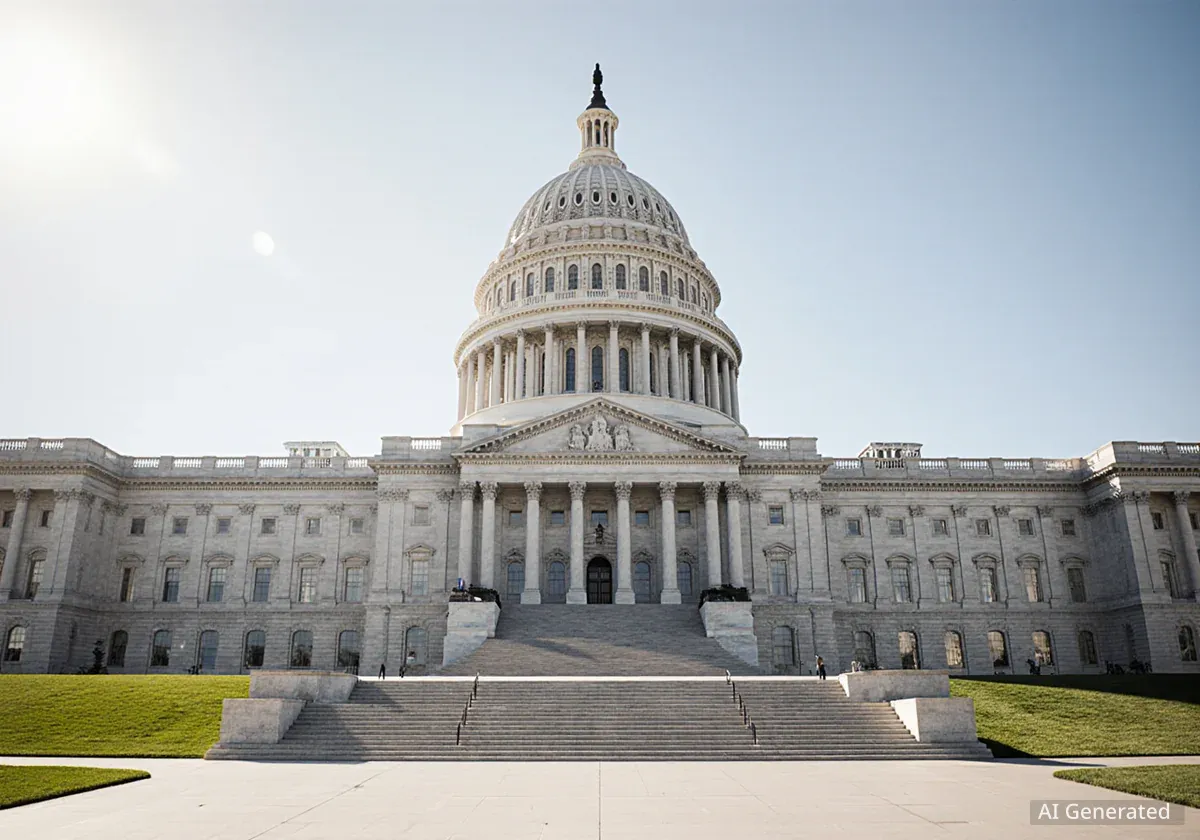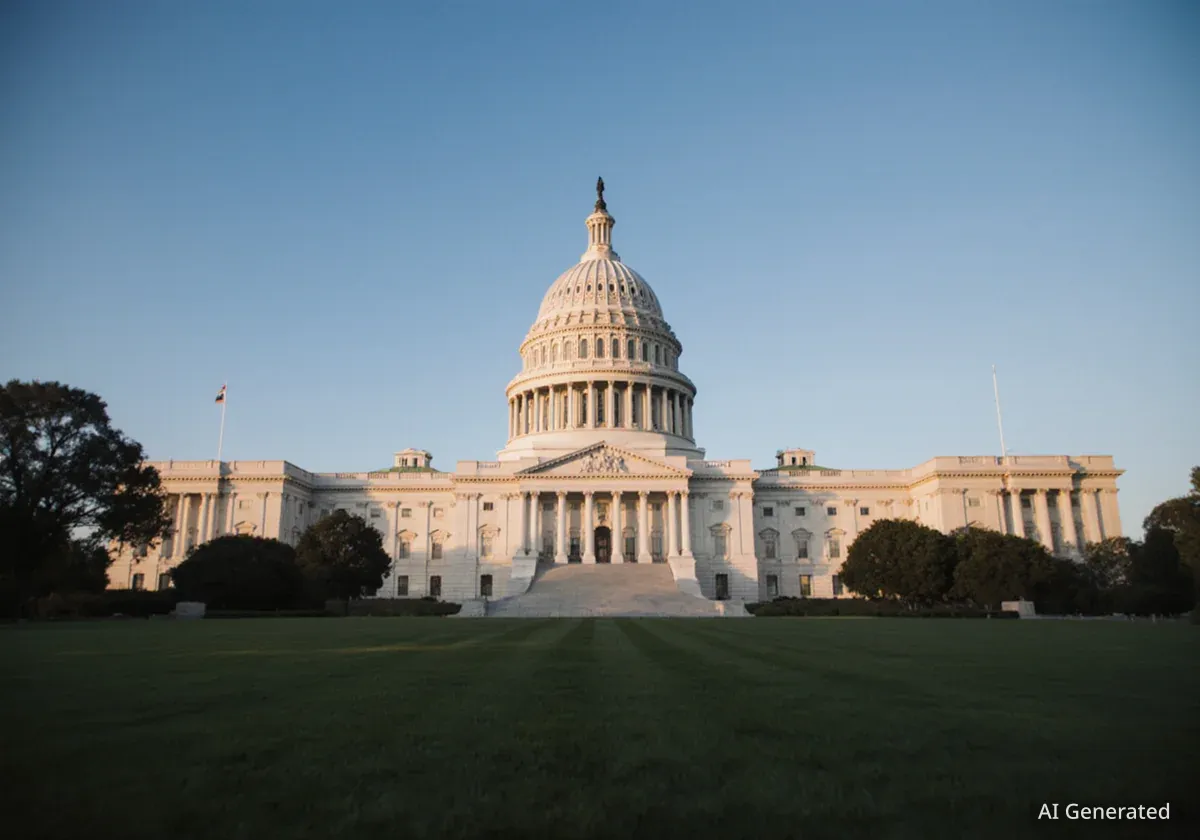The Richmond City Council has postponed its decision on the 2026 real estate tax rate until at least October, following a debate over a proposed tax reduction. The delay came after the mayor's office warned that the proposed cut could create a significant budget shortfall of over $17 million.
The central issue is a proposal from Councilor Reva Trammell to lower the property tax rate by 4 cents, which is opposed by Mayor Danny Avula's administration. The council will now revisit the matter on October 14, facing a state-mandated deadline to set the rate by November 17.
Key Takeaways
- Richmond City Council has postponed the vote on the 2026 real estate tax rate to October 14.
- A proposal by Councilor Reva Trammell seeks to reduce the rate from $1.20 to $1.16 per $100 of assessed value.
- Mayor Danny Avula's administration opposes the cut, citing a potential $17 million revenue loss that could impact city services and staffing.
- If no decision is made by the November 17 deadline, the rate will automatically adjust to a lower level dictated by state law, causing a larger budget deficit.
Debate Over Proposed Tax Reduction
The discussion centers on two competing proposals for the city's 2026 real estate tax rate. Councilor Reva Trammell (8th District), with support from two colleagues, has introduced a measure to decrease the rate to $1.16 per $100 of assessed value. This is not the first time Councilor Trammell has advocated for a reduction; similar proposals were put forward in 2022 and 2024 but were not approved.
In contrast, Mayor Danny Avula and Council President Cynthia Newbille (7th District) advocate for maintaining the current rate of $1.20 per $100 of assessed value. The administration argues that this rate is necessary to fund the city's approved budget for fiscal year 2026.
Financial Implications of the Rate Cut
During a council meeting, the Avula administration presented its case against the proposed 4-cent reduction. Officials warned that such a cut would result in a revenue loss of approximately $17 million for the city.
"But in the collective, this is a $17 million hit," Mayor Avula told the council. "It means potentially 150 or so staff across the entire operation, or it means a 13% reduction in our operating budget, or it means a significant reduction to what we give to schools."
The administration also argued that the benefits of the tax cut would be minimal for most residents and disproportionately favor owners of high-value properties. According to their analysis, a homeowner with property assessed at $1 million would save about $400 annually. For a property at the city's average residential assessment of $426,000, the annual savings would be $170.40.
Property Taxes by the Numbers
- Current Rate: $1.20 per $100 of assessed value.
- Proposed Reduced Rate: $1.16 per $100 of assessed value.
- Projected Revenue Loss from Cut: $17 million.
- Property Tax Contribution: Accounts for 57% of Richmond's general fund revenue.
- Projected 2026 Revenue at $1.20 Rate: $523 million.
Councilors Push for Relief and Scrutiny
Supporters of the tax reduction argue that it is a necessary step to provide financial relief to residents. Councilor Stephanie Lynch (5th District), who backs Trammell's proposal, noted that neighboring localities like Henrico County have successfully lowered property tax rates without compromising essential services.
Councilor Sarah Abubaker (4th District), another supporter, called for a more balanced debate, stating that the mayor's administration had ample time to present its position while Trammell did not. Abubaker emphasized that her constituents have expressed concerns about the city's budgeting practices.
"I would like to get some sort of commitment that we are going to follow state law and work our budget to be appropriate to state law, as opposed to making an assumption that we can continue to take people's money at $1.20 which is, quite frankly, it's a tax increase," Abubaker said, referencing the impact of rising property assessments.
Understanding Virginia's 101% Revenue Limit
Under Virginia state law, municipalities cannot increase total property tax collections to a level that generates more than 101% of the previous year's revenue without holding public hearings and passing specific ordinances. When property assessments increase, the law often requires the tax rate to be lowered to a "rollback" rate to stay within this limit. For Richmond, this rate would be $1.146 per $100. Both the $1.20 and $1.16 proposals exceed this level, classifying them as tax increases under state law.
The Path Forward and Critical Deadlines
The council's decision to postpone the vote provides more time for deliberation. Councilor Kenya Gibson (3rd District) requested more detailed financial data from the administration, including specifics on collective bargaining costs, to get a "complete picture" before casting a vote.
The city faces a strict deadline. The council must approve a tax rate by November 17, 2025. If they fail to pass either the $1.20 or $1.16 proposal, the rate will automatically revert to the state-mandated 101% level of $1.146 per $100. This scenario would create an even larger budget shortfall than the one projected under Trammell's proposal.
Mayor Avula reiterated that the city's fiscal year 2026 budget was constructed based on the $1.20 rate. He also noted a planned freeze on tax assessments until fiscal year 2027, which would prevent revenue growth from rising property values next year.
"The compounding impact of knowing that developing next year’s budget we’re not going to have the additional revenues from an increased tax assessment and if we combine that with a reduction in revenues, we would be in a particularly difficult place," Avula explained.
The debate is set to resume at the October 14 meeting, where council members will once again consider the competing proposals and their long-term effects on the city's finances and its residents.





